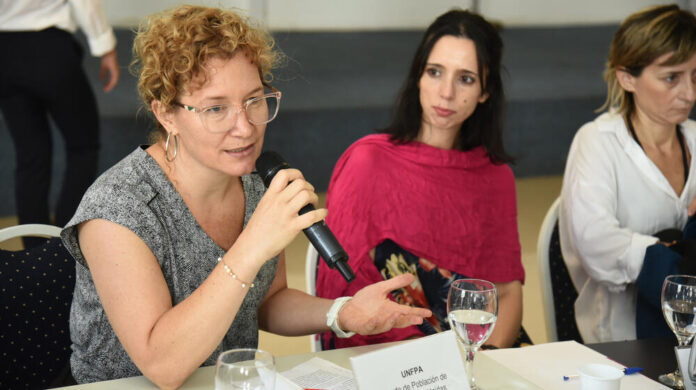BUENOS AIRES, Argentina – “Afflict the comfortable and comfort the afflicted”: This old maxim followed by many journalists around the world has driven countless investigations into injustice and sparked discussions of taboo topics.
But the ethos behind the motto has also occasionally brought journalists into conflict with the world’s most powerful people and drawn public ire. And as members of the media have moved online, so have those attempting to silence them.
According to a 2020 global survey, nearly three quarters of women journalists had experienced online violence during their career, such as death threats, image-based harassment and threats of sexual violence. One third had been subjected to a physical attack as a result of their online presence, with journalists of colour and LGBTQIA+ journalists facing even greater risks.
And this abuse is far from limited to public figures: An alarming 85 per cent of women have witnessed online violence, with 40 per cent having experienced it themselves. The ramifications of this abuse can be devastating, frequently leading to painful self-censorship and spiralling from the digital into real life to cause serious physical and mental health issues.
“When violence and hate are delivered digitally, they are too often dismissed,” said UNFPA Executive Director Dr. Natalia Kanem. “[Yet it] can cost women their careers, their health and even their lives.”
The muzzling effect of online violence
Mariana Iglesias, who has reported for the major Argentinian newspaper, Diario Clarín, since 1996, is the country’s first journalist to carry the title of Gender Editor – and is unfortunately very familiar with digital violence. “In Argentina, it is a widespread problem”, she told UNFPA.
Ms. Iglesias has recently written about the movement to legalize abortion in Argentina — an issue that has stirred controversy over the years as polls have shown polarized opinions on legal reform. (In December 2020, the government passed legislation permitting access to abortion up to 14 weeks).
As coverage of the debate intensified, Ms. Iglesias received emails, messages and calls telling her to watch her back and to “cut it with what you write”, she said. More widely, according to research by Amnesty International, one in three women across Argentina have been subjected to violence on social media against the backdrop of the abortion debate.
For many, online gender-based violence acts as a muzzle. Nearly half of the women surveyed by reported using social networks less or leaving them altogether. And almost one third of the female journalists who participated in the UNESCO study reported self-censoring on social media.
Ms. Iglesias, for her part, stopped engaging on social media – “I couldn’t take it anymore,” she said – but refused offers from the newspaper to put a police officer on security watch for her or to be shifted onto other writing assignments.
“I’m not going to change my themes, and I’m going to continue working,” she said.
Revising the rules
Hate speech is rising around the world, with sexist and sexualized hate speech in particular damaging the practice of journalism and driving women from precisely where their voices are most urgently needed.
As an Argentinian journalist told researchers investigating online violence in 2020: “If you tweet something and you have many followers, and you know your opinion is going to upset a segment of people, you have to pay for it. Those are the horrible rules of the game.”
But activists and advocates from across the country are seeking to change the way that game is played. In March 2023, UNFPA joined dozens of organizations in Argentina who signed a commitment to collaborate towards the eradication of gender-based violence and discrimination in digital spaces.
UNFPA is also working to combat online gender-based violence by providing survivors with response services as and when needed, and by raising awareness through new safety and ethical guidelines and its flagship bodyright campaign.
The hope is to empower survivors and advocate for increased accountability and regulation, because, as UNFPA Executive Director Dr. Kanem has urged, “This is a moment to renew the urgent call for society-wide activism to prevent violence, wherever it happens, until we reach the end.”
Journalists like Ms. Iglesias are heeding that call and breaking their silence on online violence. She has filed a complaint with a unit of Argentina’s Public Prosecutor’s Office and is part of a new, UNFPA-created Gender Editors Network, which seeks to unite journalists towards the goal of strengthening media coverage on issues of gender equality.
But she says more legal restraints must be put in place to discourage offenders from committing online violence. “The digital world today is self-censorship and impunity,” she continued. “It is a discussion that must be settled”.


